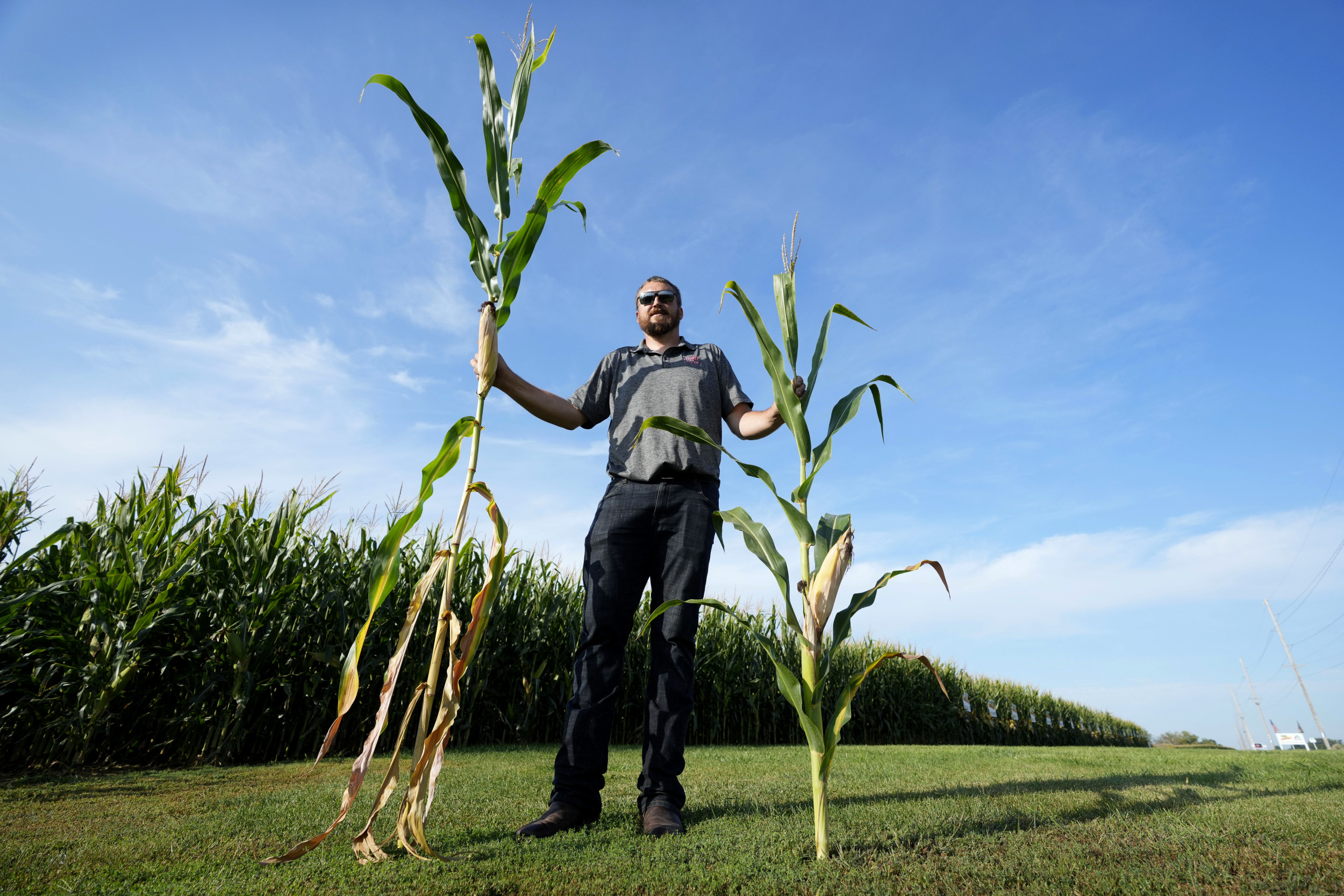🎙️ Voice is AI-generated. Inconsistencies may occur.
Nearly half of Democratic voters say a third political party "is necessary" in the United States, according to a new poll.
"The appetite for third parties always rises along with domestic tumult and sharp partisanship. Parties that are out of power have two natural reactions, one being an internal frustration with its own party leadership, and the second being a search for alternatives," Kevin Madden, a senior partner at Penta Group, told Newsweek in an email Friday.
In a similar vein, Georgetown University professor Michael Kazin told Newsweek, "Democrats are now probably more in favor of a third party because they are unhappy with the current leaders of the party. Third parties never last long in national politics but have been important in deciding elections at different times in the past."
Newsweek has reached out to the Democratic National Committee for comment via email on Friday.
Why It Matters
Last November marked a pivotal election in the United States, with Donald Trump returning to the White House after winning both the popular vote and the Electoral College. The scale of the Republican Party's triumph in November—taking the White House, flipping the Senate, and maintaining control of the House—has sparked soul-searching within the Democratic Party over what went wrong and how to rebuild.
The Democratic Party has struggled with unpopularity and internal dissatisfaction since the sweeping defeat, facing pronounced ideological and generational divides, compounded by widespread voter frustration with congressional leaders and the party's overall direction.
Democratic leaders have come under criticism from within, some for pushing the party too far left, and others for appearing too conciliatory toward Trump, and a number who have felt disillusioned with its agenda have left the party entirely to either identify as independent or as a Republican.
What To Know
A June 18 YouGov poll found that 46 percent of the 3,118 U.S. adults surveyed believe a third party is necessary in the U.S. political landscape.
Along political lines, 47 percent of Democrats supported a third party, while 35 percent of Republicans did.
Fewer Democrats than Republicans, 24 percent to 31 percent, believe that the two-party system is "enough to represent Americans."
There is no publicly available margin of error in the poll.
The poll comes as voters' disapproval of Democratic members in Congress has increased since February, per a recent Quinnipiac poll of 1,265 registered voters nationwide, conducted between June 5 and June 9.
Seventy percent of participants said they disapprove of how Democrats are handling their jobs in Congress, while 21 percent approve. Among Democrats, 53 percent disapprove, and 41 percent approve. Just 9 percent of Republicans approve of Democrats' performance, while 84 percent disapprove.
A similar Quinnipiac University poll of 1,039 registered voters in February found that 68 percent of participants disapproved of congressional Democrats and 52 percent disapproved of congressional Republicans.
Several high-profile Democrats have either switched parties or identified as independent, with former White House Press Secretary Karine Jean-Pierre announcing her departure from the party in June.

Third parties such as the Green and Libertarian parties remain active in U.S. politics; however, they often struggle to garner mass support and funding, falling short of being on the same playing field as the Democratic and Republican parties.
In the 2024 election, Green Party candidate Jill Stein and Libertarian candidate Chase Oliver each captured a small share of the national vote. In several recent close elections, third-party candidates have contributed to swaying the vote one way or the other.
The public desire for a third party isn't new, dating back decades. Earlier this month, billionaire Elon Musk—the former head of the Department of Government Efficiency (DOGE)—posted a poll on X, formerly Twitter, asking followers, "Is it time to create a new political party in America that actually represents the 80% in the middle?"
The post followed a public feud with President Donald Trump. More than 5.6 million people participated in the poll, with over 80 percent backing it.
What People Are Saying
Kevin Madden, a senior partner at Penta Group, told Newsweek on Friday: "The reality is that most voters tend to gravitate to their major-party allegiances, leaving a third-party without the funding and organizational manpower to make major progress. The 'big middle of the American electorate is still the main battleground for winning and losing elections, but it's not organized to the degree that a third-party movement can be built whole cloth from it."
Professor Michael Kazin, an expert on U.S. politics and social movements in Georgetown University's history department, told Newsweek in an email in Friday: "There may be room for a third party in the center and perhaps one on the far left today (depending on whom the Democrats nominate for president in 2028). But they would always have trouble raising money and recruiting candidates who actually want to govern instead of just protest the status quo. The Green Party candidate may have been responsible for Clinton losing in 2016 - and Ralph Nader was definitely responsible for Gore losing in 2000 (Nader won about 90K votes in Florida, most of which would have gone to Gore who lost state by fewer than 600 votes). But [Ross] Perot probably hurt the GOP nominees in 1992 and 1996 - and Nixon would have one a landslide in 1968 if George Wallace had not run an independent campaign that won several states in the South."
What Happens Next
Democrats are continuing to work out the direction of the party as they prepare for the 2026 midterms, when they aim to win back voters who shifted toward Trump last year.
fairness meter
About the writer
Mandy Taheri is a Newsweek reporter based in Brooklyn. She joined Newsweek as a reporter in 2024. You can get ... Read more



